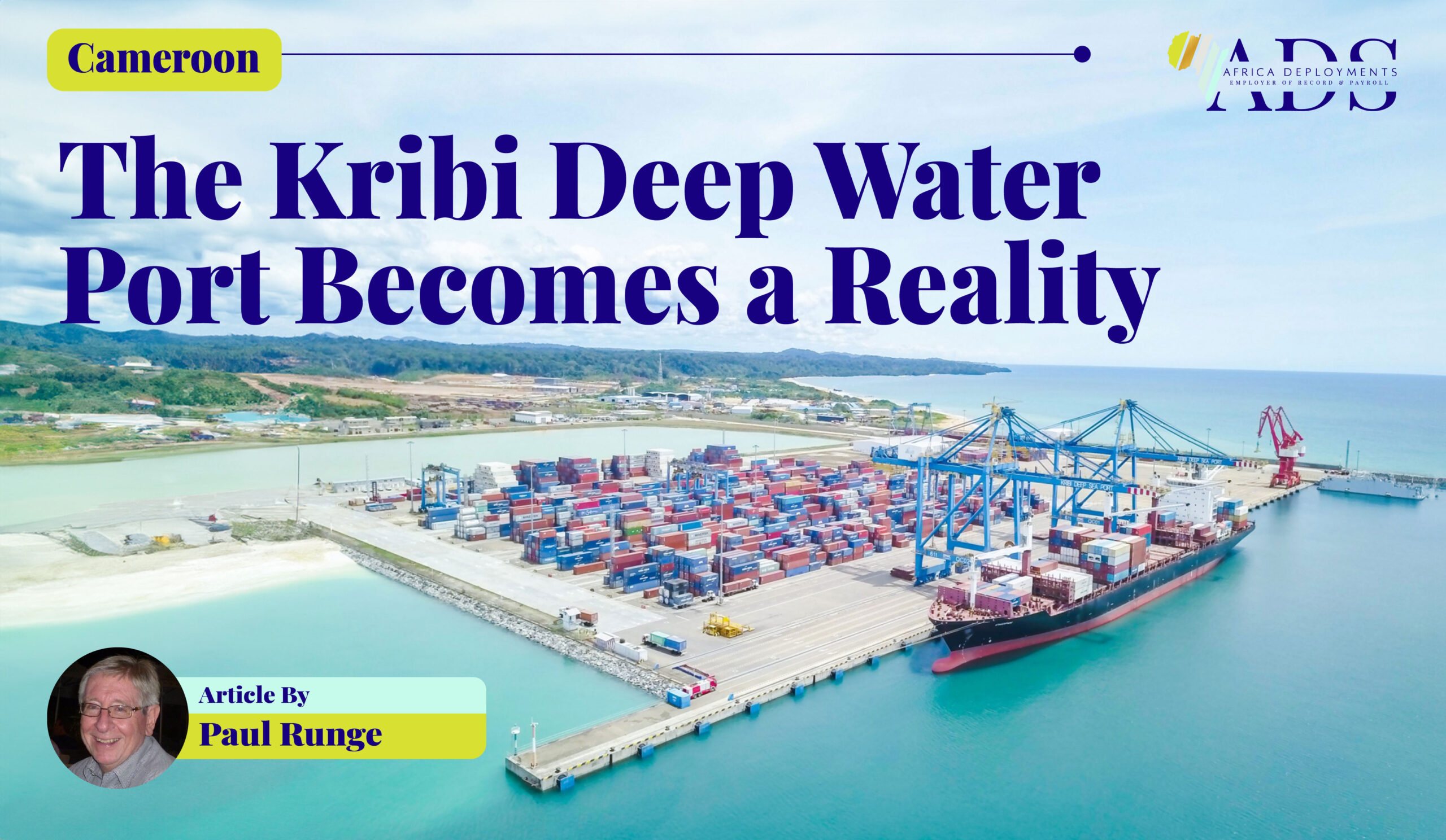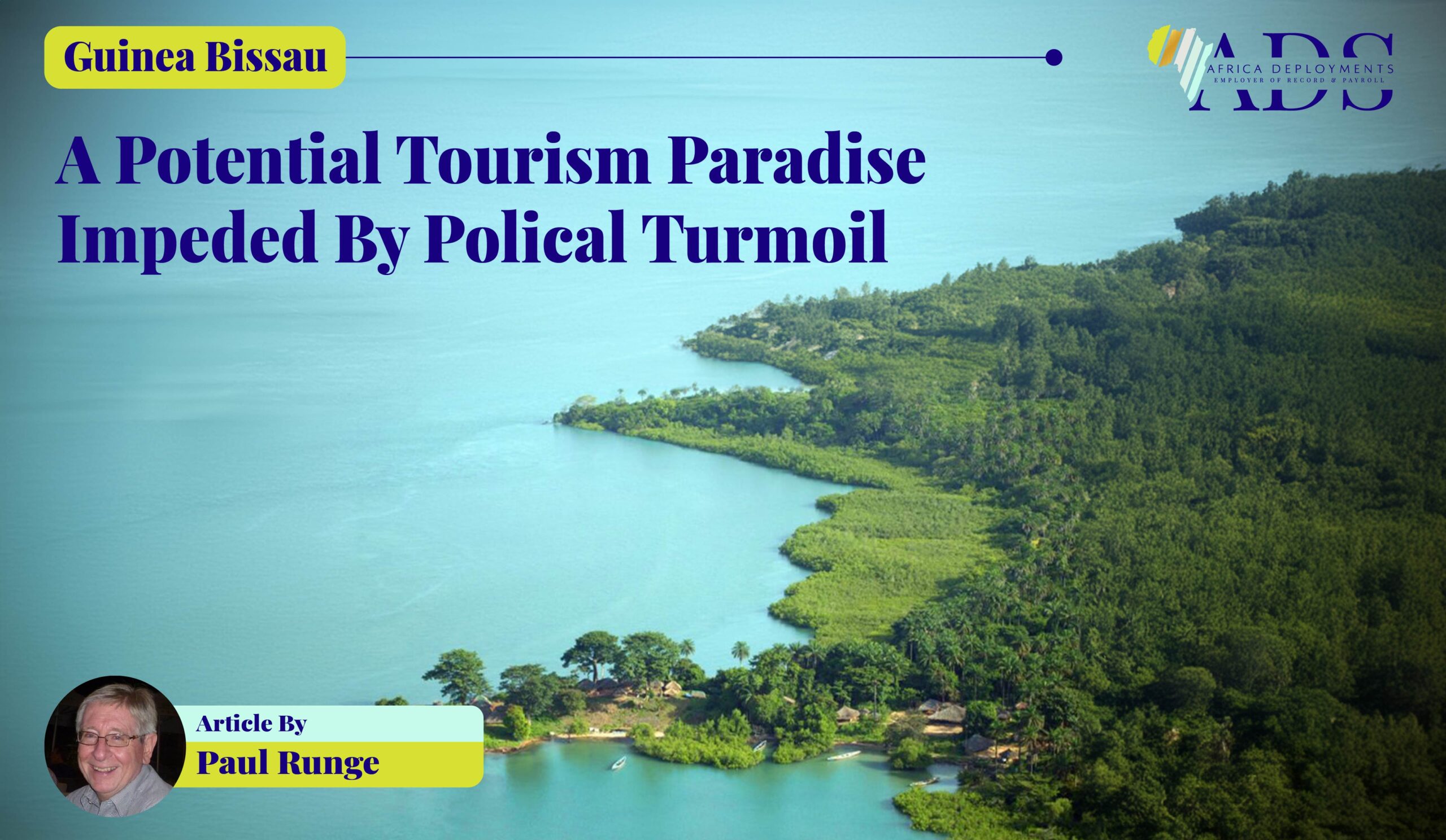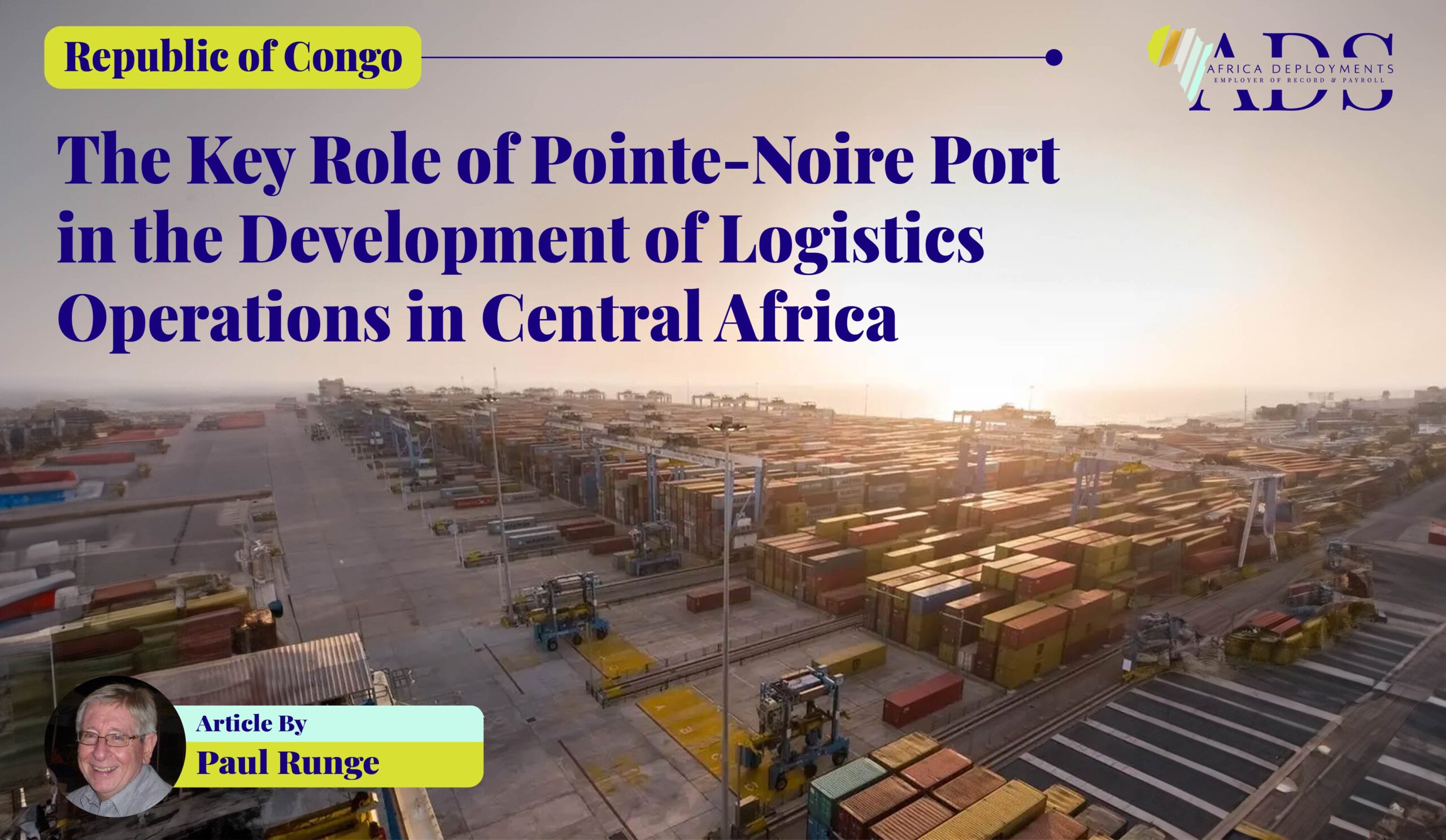
Cameroon: The Kribi Deep Water Port Becomes a Reality
So much port development…
From about 2010 until 2018, many of my business missions into sub-Saharan Africa were based on sea port developments. New ports were developing relatively suddenly in numerous markets, and I led group visits to Nacala in Mozambique, Lamu in Kenya, and San Pedro in Côte d’Ivoire to name a few.
These port projects are being undertaken in response to a need to establish alternatives to the long-standing historical ports. Strong increases in global trade volumes have led to the construction of large 39.5 foot draft Panamax vessels that can only be effectively berthed in ports with drafts deep enough to accommodate them. Many of the old ports developed during the days of sail and steamships are shallow, and they require continuous dredging. The land around them has seen much urban development, and there is consequently little space for port industrial zone development. The problem of substantial congestion has compelled governments to look at constructing alternative harbours better suited to modern trade logistics requirements, including a minimum draft of 12 metres for Panamax vessels.

The case for Kribi Port…
Kribi is situated between the Atlantic Ocean and the edge of tropical rain forest on the south-western coast of Cameroon. It was originally a fishing village and trade centre in the Gulf of Guinea. Later it was developed into a popular beach resort, especially for the population of Douala, a major city which lies some 130 kilometres further north up the coast. The idea of developing Kribi into a large deep-water port took root in the 1980-s. A 1999 governmental decree officially earmarked it for further development.
The country’s main port of Douala is shallow, with a draught of just under eight metres. It is a city that has experienced exponential growth and now has a population of over four million. There is little land available for port expansion or more industry and support infrastructure. Kribi offered a viable alternative as a port that today has a draft of 16 metres, with much surrounding land available for industrial, commercial, and urban development.

Kribi Port in 2016…
In late 2016, I led a small business mission of eight clients to Cameroon to investigate opportunities arising from the Kribi Deep Seaport Construction Project. I had long been aware of Kribi as the end point of the 1 100 kilometre Doba-Kribi oil pipeline, which transports oil from the inland oil fields around Doba in Chad to the Cameroon coast for loading onto tankers for international export.
The French logistics company that held the general cargo concession for Kribi Port very kindly organised a port visit for us. A new ring access road to the port was half-completed by a major Chinese contractor. The port area had been cleared from dense virgin tropical forest. (Some of the largest trees I had ever seen loomed above the edges.) The breakwater had been completed. The Chinese construction company had installed a few large gantry cranes which we climbed to obtain an aerial view of the project. The company had built a row of warehouses which were empty because the port had not yet been inaugurated. The only vessel berthed on the quayside was a small naval ship. No commercial shipping activity was yet permitted by the authority, the Port Autonome de Kribi.
The project clearly still had a way to go, but the impetus for its implementation was evident.

Ambitious plans for Kribi Port, Kribi Town and the area…
The port authority outlined its future plans for us. These included: extension of the quay by 700 metres, the construction of additional warehouses, a new container terminal, a water treatment plant, a power plant with transmission line, and a fibre optic cable network. A longer-term plan was for the construction of 31 berths over an area of nine square kilometres.
They also listed the overall objectives of the project: to establish Kribi as a major gateway trade point for the inland Central African neighbours of Chad and the Central African Republic by building new road and rail links into the interior; to convert Kribi into a petrochemicals and general cargo hub; to boost agro-industry through the construction of a new cocoa processing plant; and to establish the area as an industrial development zone catering for key industries with an LNG plant and perhaps, cement factories.
The authority gave us a PowerPoint presentation with futuristic images of a thriving, modern ‘green’ city with standard and upmarket housing, commercial centres, schools, clinics, parks, hotels, and leisure facilities.

And Kribi Port today…
The Kribi Deep Water Port was officially inaugurated in March 2018. The draft of 16 metres was achieved and vessels of up to 11 000 TEU’s can now be serviced. More gantry cranes have been added. Concessions for multi-purpose and container terminals have recently been awarded. By July 2019, the port had handled 210 000 TEU’s. The shipping information agency, VesselFinder, reported in late October 2023 that five vessels had arrived within the past 24 hours, and that six ships were expected to arrive within the next few days.
Major logistics groups such as Africa Global Logistics (formerly Bolloré) are active concession-holders. The China Harbour Engineering Company (CHEC) has completed large-scale infrastructure projects at the port.
But if only we had had more time in Kribi…
There is much more to Kribi Town than the port. There are palm-lined, white-sand beaches, French-style guest houses and cosy beach-side, sea-food restaurants. A first-time visitor to the town will be struck by the old church from the German colonial times, situated on a bank above the entrance with its tall and sharp steeple.
Just seven kilometres north of Kribi, on the road back to Douala, we stop at the Lobé Waterfalls. It’s a unique natural phenomenon in that this one of the few falls in the world where a river’s flow empties directly into the ocean. One of the locals tells us that there is a pygmy village further up the river and asks whether he can guide us there?
But this is business and we’re only in Kribi for the day. There is no time for lazing on a beach, taking in historical sites, or visiting a pygmy village. I’ll just have to go back one day on my own as a free tourist!






